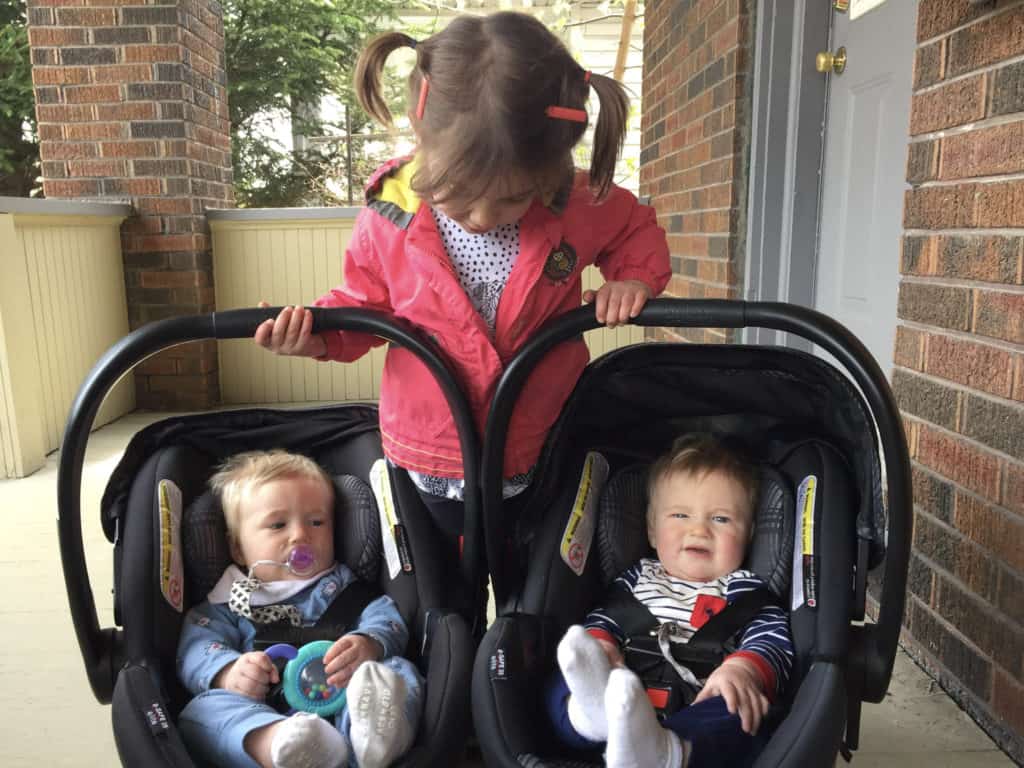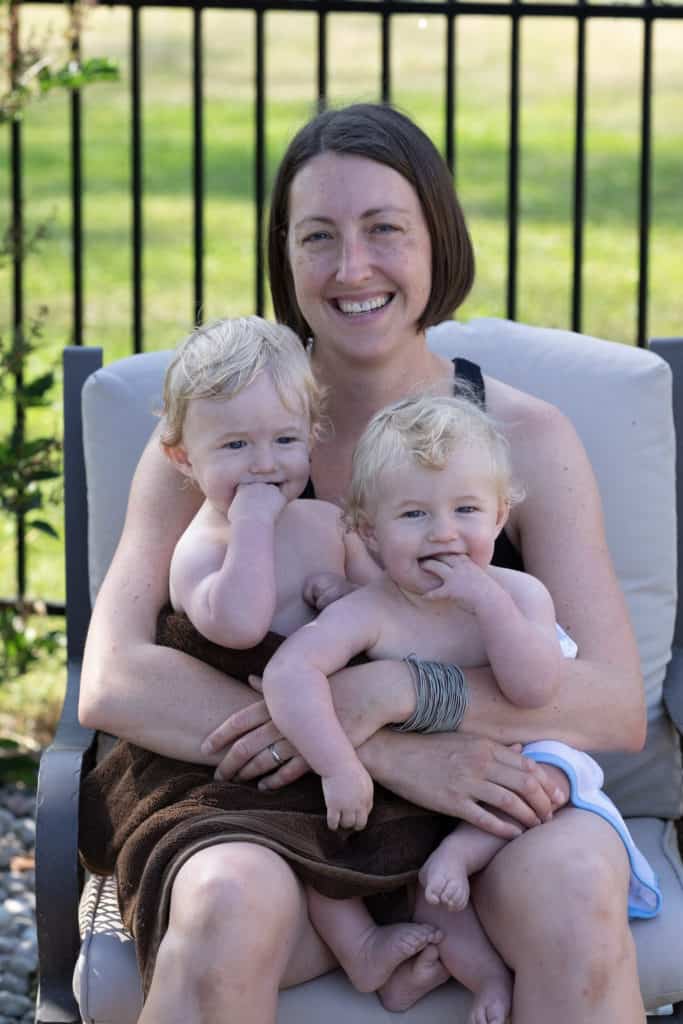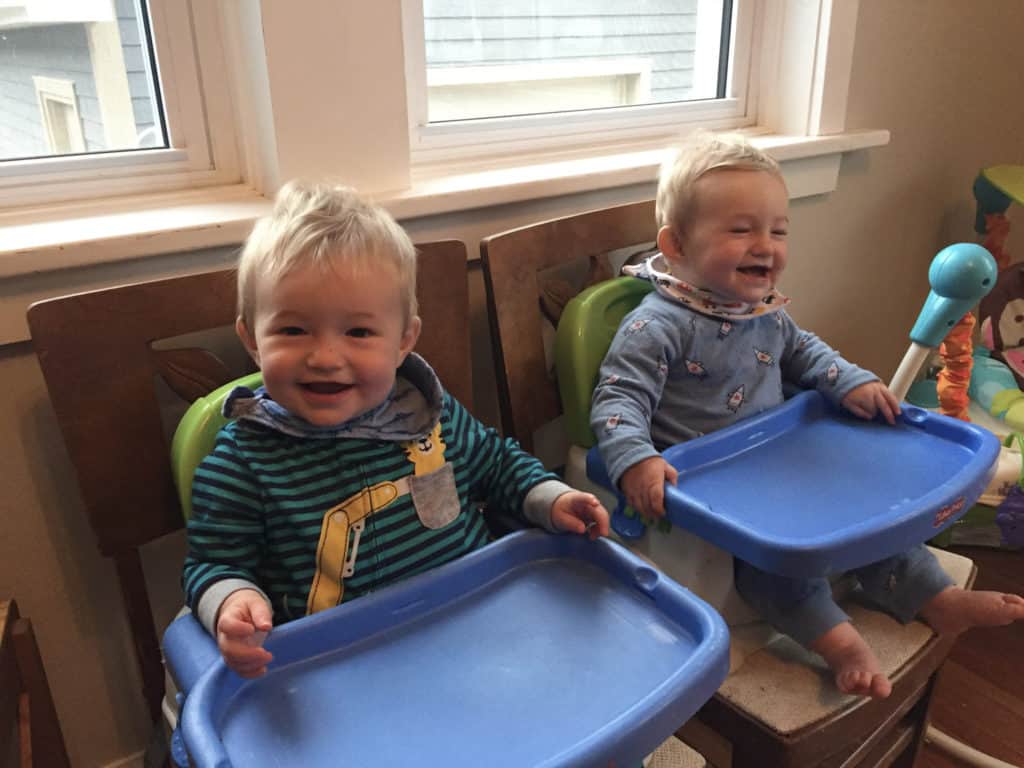At the 20-week ultrasound for my second pregnancy, my husband and I were hoping for another girl. We wanted to raise a brood of them. “Boys light things on fire,” my husband liked to say. “I should know.”
After half an hour spent taking images, the ultrasound tech told me I had not one but two boys in there. I was stunned, and weirdly disappointed.
Given the five years of infertility we’d endured before our first child had arrived, my reaction felt a bit outrageous. Here were two more healthy babies on their way, surprise twins. How dare I feel anything but 100 percent grateful for this plot twist? But I didn’t. I felt daunted. Knowing the twins were boys, Matt and I had new concerns. Would our boys be kind? Would they destroy our house? Would they respect others?

I have always believed that there was no difference between boys and girls. In high school, I insisted on carrying heavy boxes just to prove I could do the same things as the guys. More recently, as an 11th-grade social studies teacher, I’d led discussions about pervasive gender norms and about gender as a social construct. Even though I’d claimed to not buy into them, it took finding out that we were having boys to realize just how deeply gender norms had affected me too.
Here were two more healthy babies on their way, surprise twins. How dare I feel anything but 100 percent grateful for this plot twist?
In the weeks that followed the ultrasound, I started to share the news with friends and family. Maybe I hoped other people would allay my fears, but they only exacerbated them. I’d see lots of wide-eyed reactions when I told people we were going to have twins, but people’s eyes got even bigger when I told them they were boys. Instead of a simple Congratulations! the reactions I got were pretty negative.
Oh wow, boys! Double trouble!
Seriously? Are you ready for your house to be destroyed?
Two boys? That’s rough.
Such remarks were offhand jokes, stereotypes, that in any other context I might have rolled my eyes at.
I wondered what we might do differently—as parents and as a culture—to help usher in a new generation of boys that were kind, thoughtful, and respectful.
In quiet conversations, other women admitted that finding out they were having a boy had felt like a letdown to them too. It seemed taboo to even have those discussions, but at the same time, our friends with older kids acknowledged the differences between their kids. They talked about their girls who loved pink princesses and their boys who turned Barbies into weapons. It felt good to know I wasn’t alone, but frankly, I was still a bit disappointed in my reaction to our gender reveal.
Over the next five months, while growing these two tiny humans, I had time to think about boys and the men they become. By then, the #MeToo movement, which had emerged on social media just before my twin pregnancy began, was in full swing. I thought about how we associate boys with trouble, not just in some vague way but as part of our lived experience. I wondered what we might do differently—as parents and as a culture—to help usher in a new generation of boys that were kind, thoughtful, and respectful.

In the midst of #MeToo, my friends and I talked about questionable encounters we’d had in our lives, supposed gray areas. Two years later, I’m quite sure those encounters were absolutely inappropriate, and only a culture of “boys will be boys” could have fooled me into thinking any differently.
At work, I talked with two dozen teenagers about the gendered ways they’d been treated. The girls in my class listed all the things they’d been told not to do and the places they’d been told not to walk. The male students in my class looked surprised.
These conversations and others like them made me realize that as a parent, I had a role to play in changing harmful cultural norms. I realized that Matt and I had an opportunity now to teach all three of our kids about limits, respect, and consent.
As a kid, I had learned the power of expectation. I remember people asking my mom about me and my siblings. “How old are your kids?” people asked her.
“I have three teenagers,” she’d tell them.
“Ugh,” they usually replied, even with us in earshot. “Rough.”
“Oh, my teenagers are great,” my mom would always say. I heard her say it, over and over, and I wanted to live up to those words.
Now that I’m a mom, too, I’m thinking about the kinds of expectations we want to set for our kids, specifically for our sons.
Matt and I wonder how we’ll help shift cultural expectations of boys, but I’m sure we’ll be figuring that out gradually for many years to come.
For now, it starts with saying goodbye to the phrase “boys will be boys,” an insipid phrase that lets boys get away with violence and disrespect. It also means paying attention to how we talk about our kids to others. The things we say about our kids in public matter, because they are listening.
In our house, we’ll try to make sure our boys read books about women and see plenty of female protagonists on the screen. We want our kids to know that women’s lives and their stories matter just as much as men’s. And we’ll try to surround ourselves with men who embody all different kinds of masculinity.

We’ll do our best to show all three kids that our expectations of them are the same, regardless of gender. Their first responsibility, always, will be to treat those around them with respect.
As the kids get older, it will mean teaching boys what they should do, instead of just teaching girls what they shouldn’t do. As parents, we need to help each other figure out how to have these conversations with our sons, so that our daughters will experience less violence in their lives. As parents, we can help fill this world with compassionate, respectful boys who care deeply about the people around them.
Like this piece? Subscribe to our newsletter for real stories about women on their journey to motherhood.
